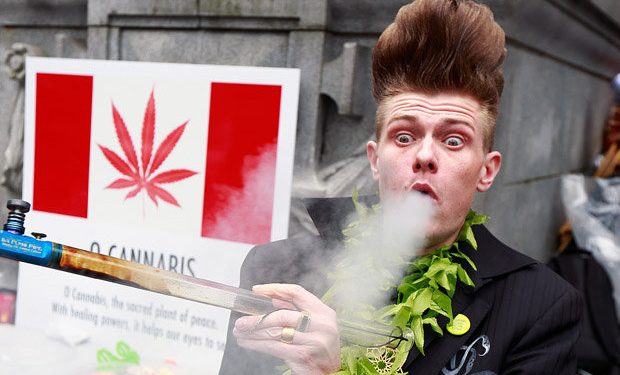Toronto: The name of the store is High North, but it might as well be named High and Dry because for all but about four hours of the first two weeks since marijuana was legalised in Canada, there was no pot to sell.
Trevor Tobin, one of the owners of the Labrador City shop in Newfoundland and Labrador, said they went 10 straight days without supply.
“The producers keep saying there will be some bumps in the road, but right now it’s not a bump in the road. It’s a big pothole,” he said.
His mother, Brenda Tobin, is a part-owner and said that after she tells customers there’s nothing to buy, “a lot of them are saying, ‘Oh, well. I guess it’s back to the black market.'”
Legalisation arrived October 17, and Canada became the world’s largest national marketplace for so-called recreational marijuana. But for now, it’s a superlative in name only.
The first weeks have felt more like a soft opening with few retail outlets operating and rampant supply shortages. It’s not because Canada can’t produce enough cannabis products — licensing those producers has been slow, and the federal government is taking steps to speed up the process.
The provinces are handling the sales and most of the regulations. Reports from around the country are similarly discouraging when it comes to supply.
Quebec closed its government-run shops for three days this week because of a lack of pot and will continue to keep them shut Mondays through Wednesdays until availability is stabilised. Manitoba Liquor & Lotteries said it expects product shortages in both brick-and-mortar and online stores could last six months.
Ontario, Canada’s most populous province, won’t have any stores open until April at the earliest as the new conservative government writes regulations. Meantime, police have shut down at least 11 illegal dispensaries in the province.
Ontario residents who want to make legal purchases are flooding the online government store. At least 150,000 orders arrived in the first week, more than all other provinces combined, and the store can’t keep up.
Contributing to the delivery problem is a strike by workers at Canada Post, the nation’s postal service that handles online marijuana orders that are legal countrywide.
British Columbia, the third-largest province by population and a place that historically supplied of much of the country’s illegal weed, still has just one retail store.
Across Canada, people are returning to the black market. And some never left.
Corey Stone, a 32-year-old bar-restaurant manager in Montreal, and his friend were first in line at Quebec’s government-run cannabis store October 17, but he hasn’t been back because of the supply problems and has been getting his pot illegally.
In the capital of Ottawa, Ontario Capital Buds is one of the last holdouts after most of the illegal dispensaries in town closed October 16 so they could file for legal operating licenses. Business is booming — at 11 am on a recent chilly, gray day, the waiting room was packed.
Blake Murchison, 62, was among the customers. He didn’t try visiting the government’s online store.
“Why? There’s a postal strike!” he laughed. “I’m not patient. It’s a matter of convenience, really. Or inconvenience.” Devyn Stackhouse, a 30-year-old student at Ottawa’s Algonquin College, did go to the government website October 17 and placed two orders for five pre-rolled joints and a gram each of four cannabis strains. After waiting more than a week to get a delivery, Stackhouse went to an illegal dispensary.
“If (the government) were serious about access, serious about smothering the black market, then more resources would have been allocated to the OCS,” Stackhouse said, referring to the Ontario Cannabis Store website.
In Newfoundland, 25-year-old technician Elwood White has been to three legal shops and found little selection. He said the marijuana is more expensive but better quality.
“It definitely has better buzz,” he said.
Private and government retailers are dependent on licensed producers to send them products. But so far, of 132 marijuana producers approved by Health Canada, only 78 have sales licenses.
AP






































